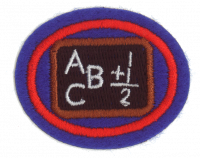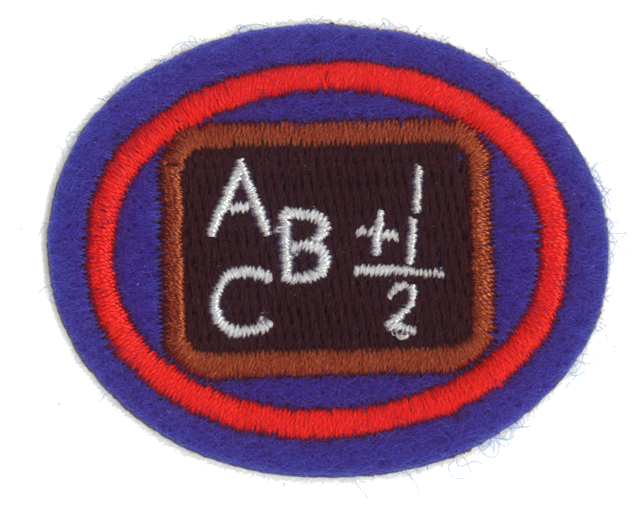AY Honor Tutoring Answer Key
1
The Tutoring honor has been designed so that it is within the capabilities of Pathfinders who are in the 8th grade or higher. This requirement should not be overlooked, as it is only at this level of maturity and academic achievement that a Pathfinder is socially and mentally capable of serving effectively as a tutor.
2
26 Now an angel of the Lord spoke to Philip, saying, “Arise and go toward the south along the road which goes down from Jerusalem to Gaza.” This is desert. 27 So he arose and went. And behold, a man of Ethiopia, a eunuch of great authority under Candace the queen of the Ethiopians, who had charge of all her treasury, and had come to Jerusalem to worship, 28 was returning. And sitting in his chariot, he was reading Isaiah the prophet. 29 Then the Spirit said to Philip, “Go near and overtake this chariot.”
30 So Philip ran to him, and heard him reading the prophet Isaiah, and said, “Do you understand what you are reading?”
31 And he said, “How can I, unless someone guides me?” And he asked Philip to come up and sit with him. 32 The place in the Scripture which he read was this:
“He was led as a sheep to the slaughter; And as a lamb before its shearer is silent, So He opened not His mouth. 33 In His humiliation His justice was taken away, And who will declare His generation? For His life is taken from the earth.”[a] 34 So the eunuch answered Philip and said, “I ask you, of whom does the prophet say this, of himself or of some other man?” 35 Then Philip opened his mouth, and beginning at this Scripture, preached Jesus to him. 36 Now as they went down the road, they came to some water. And the eunuch said, “See, here is water. What hinders me from being baptized?”
37 Then Philip said, “If you believe with all your heart, you may.”
And he answered and said, “I believe that Jesus Christ is the Son of God.”[b]
38 So he commanded the chariot to stand still. And both Philip and the eunuch went down into the water, and he baptized him. 39 Now when they came up out of the water, the Spirit of the Lord caught Philip away, so that the eunuch saw him no more; and he went on his way rejoicing. 40 But Philip was found at Azotus. And passing through, he preached in all the cities till he came to Caesarea.
3
A variety of factors influence achievement in school. IQ is an important factor but not a social condition.
- drug and alcohol abuse in the home hurts children
- unstable marriages/unstable living envirnonment
- children shuffled from one parent to the other to grandparents may feel unstable and may miss school
- an unhealthy living environment can cause sickness and missing school
- parents who lack a good education have a hard time teaching skills, helping with homework, or reading with and to their children
- immigrant families may lack English skills - and poor English at home can make progress in school difficult
- some families are forced to move regularly, which destablizes the child. It may mean changing schools which means a lack of continuity
- children may have to work or watch siblings, cutting into homework time
- poor nutrition and hunger (for economic reasons or lack of nutrition knowledge) will immediately drop school performance. A hungry kid has a hard time learning.
- children who are abused emotionally, physically or sexually often struggle academically
- poor families can not afford extra curricular activities that enhance learning.
- inner city schools are notoriously under funded, may not attract the best teachers, and spend significant time and effort on discipline and safety and the expense of instructional time.
4
4a
Older students helping younger students. Advantages include:
- tutoring reinforces previous concepts for the older student
- increases understanding and relationships between students in different classes and may even reduce bullying
- builds qualities like responsibility, willingness to help others in older students
4b
Presumably these programs will be more structured than a peer tutoring or homework center, with specific program teaching objectives and adults (or at least older teens) providing group and individual attention.
4c
A community homework center is a safe, controlled, structured environment where students can do homework, seeking help as required. It may therefore less intensive tutoring, with kids only seeking help as required.
5
The obvious difference is the amount of one on one attention each student receives.
Pros to one-on-one sessions include:
-opportunities to target specific problem areas for the specific child
-more intensive help
However, one-on-one programs require more tutors (labor intensive) and therefore may not be the best use of limited resources. Students do not get the chance to practice learned skills before learning the next skill. These issues can be addressed by using small groups. Also in small groups students can help each other and teaching something reinforces the learning of the skill.
6
Tutoring is a form of teaching.
An example job description: The Literacy Corps is a community based service learning opportunity open to students from every college and major. Students must have a willingness to serve as role models for young children.
The position also includes trainings and reflections.
Successful tutors demonstrate:
- Ability to work with and understand students from a wide variety of backgrounds
- Appropriate level of professionalism and demeanor
- Dependability in keeping to scheduled work hours and punctuality
- Ability to work collaboratively with colleagues
- Adaptability to unexpected events
- Ability to take feedback in a constructive manner
7
Tutoring is a form of teaching, so the tools and resources are much the same as a teacher employs. Ideally the tutoring program will closely align with the school classroom objectives, and therefore many of the tools needed can be obtained from the classroom teacher. In a homework help center or other tutoring situation the student's own textbooks and workbooks are also useful tools for the tutor.
The grade level and subject matter being tutored is a big factor too. Tutoring 2nd grade math or reading does not require much specialized knowledge (only technique) while tutoring Grade 12 Chemistry will require most tutors to get up to speed on the material to be effective.
Assessment tools (tests) are necessary to isolate areas that the student needs to improve and to track progress. Carefully selected reading lists and books and math worksheets are required materials.
We recommend reading this document: http://www.nationalserviceresources.org/filemanager/download/AC_TutoringToolkit.pdf More resources here: http://www.urbanministry.org/wiki/tutoring-toolkit-tools-strengthen-your-tutoring-program
8
Put your learnings into practice. Look for community based tutoring programs, ask at your school, or if all else fails, arrange to privately tutor someone. You will learn more in a structured tutoring program though, so to get started try to find a structured program. This activity can be used as a friendship building outreach activity - one of the reasons the honor was placed in the Outreach category.


